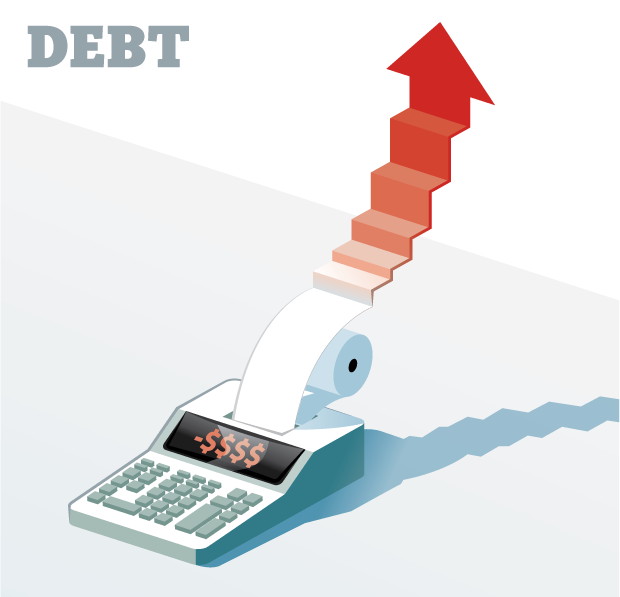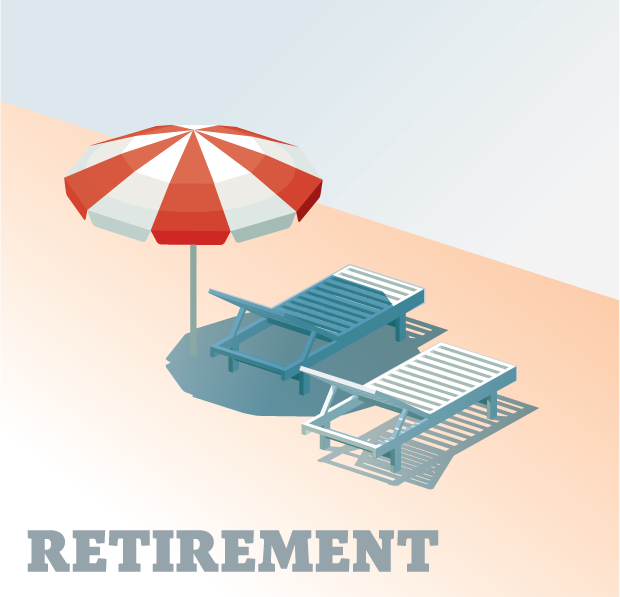Are you spending too much? Living paycheque to paycheque? Unable to save? Drowning in student – or other kinds of – debt? Unclear on where you stand for retirement?
We spread the word about a Globe and Mail financial boot camp a few months back and were surprised at the response. Not just by the number of people who contacted us, but by the tone of the messages we received.
The people we heard from are stressed about their debts, worried about their ability to save and nervous about retirement. Financial boot camp addresses these concerns with concrete ideas for taking action. Forward march.
Choose your topic
Debt
Savings
Gen Y
Retirement


I have been in debt since I got my first credit card almost 20 years ago.
— a 35-year-old woman in Whitby, Ont.
Background Briefing
Applicants to our boot camp are looking for help with retirement, home buying, saving and investing, but the topic mentioned most by far was debt and how to get rid of it. After years of low interest rates, people have borrowed themselves into a hole. Debt repayment is crowding out all kinds of other financial goals, from buying a first home to travel, to retirement saving.
We asked applicants to report on the obstacles that prevent them from paying off their debts. Temporary or contract work was mentioned a few times, as was an illness in the family, daycare costs and raising kids on a single income. But the theme that really stands out is an inability to control spending. One applicant says the temptation to shop on her lunch hour is irresistible. Another said Internet shopping is his weakness. Others admitted to a tendency for frivolous spending and a lack of self-control.

In the words of my mother, I spend money like a drunken sailor on shore leave.
— a 41-year-old woman in Winnipeg
Motivational moment
Two things are happening in your brain when you buy things on impulse, according to Laurence Ashworth, a marketing professor at the Queen’s School of Business in Kingston, Ont. First, you’re acting on an instinct that goes back to those ancient days when immediate gratification made sense then because you didn’t know how long you might live. “Life was shorter and opportunistic, and you generally took what you could get,” Prof. Ashworth said.
Second, you’re ignoring the long-term consequences of your spending. Again, that’s normal. “We tend to discount things that happen in the future far more than we should,” Prof. Ashworth said.

I never learned how to budget or manage finances.
— a 42-year-old man in Stouffville, Ont.
Action Plan
Drawing upon his understanding of consumer behaviour, Prof. Ashworth offered these suggestions for controlling your spending:
- Pay cash: This gets around your tendency to ignore the long-term consequences of buying things on your credit card. Figure out how much you want to spend before going out shopping, take out that much cash and leave your debit and credit cards at home.
- Pause, even for 30 minutes, before making a purchase: “The excitement from the possibility of acquiring a new thing will die down,” he said. By the way, this is just as true if you buy the item.
- Consider the opportunity cost of the purchase: Ask yourself, what else could I do with this money? If your spending creates debt that prevents you from saving, this question may help turn you around.
- Understand how self-control works: “It’s kind of like a muscle,” Prof. Ashworth said. “It can get stronger, but it can also get tired.” Don’t plan to do a lot of shopping at once because your self-control will be depleted.
- Avoid exposure to marketing that drives you to over-spend: “Online is dreadful because it brings this exposure into peoples’ workplace and into the home,” Prof. Ashworth said. Also, limit your time in shops and malls.
Additional thoughts
- Budget for frivolous spending: Don’t give up on treating yourself. Instead, designate an affordable amount per week or month and stick to it.
- Keep your credit card in dry dock: Stick it in a drawer, freeze it in a block of ice or cut it up, if necessary. Credit cards are an enabler for irresponsible spending
- If you do use credit cards, pay all charges within 24 hours: Lets you benefit from the convenience and points-earning power of cards while protecting you from carrying a balance.
- Remember that paying off debt is like getting a pay increase: The money you spent on credit card or line of credit payments is at your disposal for saving.
Further reading


I enjoy eating out. I enjoy entertainment. I love traveling. I love toys. I love gambling.
— a 29-year-old man in Toronto
Background Briefing
Some people legitimately can’t save because they live on a low income. But most of our boot camp applicants seem to have a different problem – they spend too much. Decades ago, people covered the cost of necessities, saved aggressively and spent what was left. Now, we spend aggressively and save what’s left, if anything. You can’t be an effective saver without rethinking your spending.

I can't save money! I spend and spend and can't remember where my money goes.
— a 39-year-old Ottawa woman
Motivational moment
Before you figure out how to spend less, you have to know where all your money is going. In other words, you need a budget. Here are some free online budgeting tools:
- The Financial Consumer Agency of Canada’s budget spreadsheet (the FCAC is a federal government agency)
- Squawkfox.com’s free budget spreadsheet
- A non-profit credit counselling agency’s tutorial on creating a monthly budget.
Once you’ve completed your household budget, get a sharp knife out because you’re going to do some cutting.

Our three small children cost a lot. We like to eat and pay no attention to food/beverage bills.
— a 40-year-old woman in Dartmouth, N.S.
Action Plan
- Pay off debt: The easiest way to find money to save is to eliminate debt and re-allocate your regular payments to savings.
- Find some regular expenses that you can cut or eliminate: Bring your lunch to work instead of buying it, switch to a more modest cable TV package (or cut your cable entirely), take public transit to work instead of driving and paying for parking, reduce restaurant meals to two per month from four. If you can’t shave $50 a month off your spending, you’re not trying.
- Think big: If you’re still short of your savings goal, you’ll need to take further steps to reduce spending. If you’re a two-car family, how about selling one vehicle and using a car-sharing service when extra wheels are needed? Or, halve the family vacation budget. Canada’s Wonderland (north of Toronto) or La Ronde (Montreal) instead of Disney.
- Make saving automatic: How much savings did you generate in Step Two? Take that amount and arrange to have it electronically transferred every month into a high interest savings account.
Additional thoughts
- Saving 10 per cent of take home pay is a good goal to shoot for, but it may not be enough if you’re getting a late start; consider 10 per cent of gross pay in that case.
- If you can’t meet the 10-per-cent level, pick a realistic savings target for your situation and make no apologies for doing so; limited saving beats zero saving.
- Come clean with your friends – tell them you’re on an austerity kick and can’t join them for that cruise down the Rhine this summer. Reuse that excuse as required.
- No complaining about low interest rates: Every dollar saved is a dollar available for emergencies, retirement or your children’s post-secondary education. Earning interest is a bonus.
Further reading


I only realized the burden of student loan debt when I began seeing how much of my monthly payment was going to the government in interest payments.
— a 23-year-old man in Ottawa
Background Briefing
Close to half of postsecondary students in Canada graduate with debt, and the average amount they owe for a four-year BA is about $25,000. At today’s interest rates, monthly instalments of $276.67 would be required to pay off that debt over the default repayment period of 10 years (assumes you take advantage of a six-month repayment grace period after graduation). That’s a big obstacle to saving for houses, which in many cities have been rising in price at rates that far exceed incomes. Speaking of incomes, the job market for college and university grads is rough. Underemployment, unpaid internships and contract work instead of full-time jobs are issues.

I've been an idiot with finances. I just need someone that has no personal connection to me to get me on a plan.
— a 29-year-old in Toronto woman who wants to buy a house in 2017
Motivational moment
You’re young and you’ll probably live 90+ years. There is time for you to pay off your student debts, save to buy a home, raise a family, save for retirement and everything else. But sacrifices will have to be made along the way.

[We’re] trying to balance living a fun and fulfilling life with putting 30 per cent of our take home pay into savings.
— a 31-year-old woman in Vancouver
Action Plan
- Student debt comes first: Direct all available financial resources to getting student loans paid in full. Forget saving for a house, forget buying a car; forget about getting a head start on retirement. The only exception would be to have some money sitting in an emergency fund.
- Don’t pay the minimum: Government student loans have a 10-year repayment period, but you can speed things up by paying more per month. Do it if you can.
- Cut your rent or move home: Worth considering if you’ve graduated recently and are having trouble repaying your student debt and covering your other expenses.
- Accept that you may have to keep living the frugal student lifestyle, even after you start working: Just temporarily – until your loans are repaid.
- Decide how important buying a house is: If it’s a big deal to you, then saving for a down payment is your next Number One financial priority after paying off student debt.
Additional thoughts
- You can buy a house at age 38 and have it paid off by age 60 without problem: No need to retire with a mortgage, even if you buy late.
- Renting forever is fine: Invest the money you’re saving by not owning a house and you could end up at least as financially well off as the home owner.
- Avoid car ownership where possible: You’ll save a tonne in monthly costs, and be insulated from surprise expenses.
- If you’re going to treat yourself to anything, I vote for travel: Best bang for your buck – you get the joy of anticipating, the enjoyment of the event and then the memories.
Further reading


[Retirement] seems far away and other goals always creep in such as home improvements, RESPs, vacation spending.
— a 30-year-old woman in Edmonton
Background Briefing
The question almost all boot camp applicants asked about retirement comes down to three words – “Am I OK?” It’s a question we can’t begin to answer on a personal basis because there are so many variables. For instance, how much have you saved? What sources of retirement income will you have? How much do you expect to spend in retirement? Will you retire with debts? Will you be helping your adult kids financially? We can’t tell you whether you’ll be OK or not, but we know who can. There are financial planners across the country who will consult with you on your retirement readiness.

After a lifetime of over spending, I am a late starter at saving for retirement.
— a 55-year-old woman in Lethbridge, Alta.
Motivational moment
We’re a society that loves to hire experts – wedding planners, personal trainers, contractors, accountants. So if you can’t get the answers you’re looking for on your own, why not pay someone to look over your retirement savings and offer an opinion? We’re talking here about financial planners who charge a flat or hourly fee for their expertise. Some don’t sell investment products at all; others will do that only if you want. Bottom line, there are experts who can answer the question, “Am I OK?”

Simply put, we do not want to run out of savings.
— a 57-year-old woman in Toronto
Action Plan
- Find out where you stand: The Canadian Retirement Income Calculator, offered by the federal government, does a very good job of weaving all your sources of retirement income together into an estimate of what kind of an income you’ll have when you retire.
- Get more help: Consider a fee-only financial planner, where you’re charged an hourly or flat rate that varies according to the scope of your plan. If in doubt when talking to someone, ask: “Do you provide financial planning for a flat or hourly fee?”
- Understand that financial planning is not about investments: You’re not after a list of funds to buy, which is what you’ll end up with if you talk to a lot of investment advisers. Investments are merely the tools you use to put a financial plan into action. First, the plan. Then the investments.
- Be prepared to pay: Costs could range from a few hundred dollars to several thousand, depending on how much detail you want and whether you need a written plan.
- Look for qualifications: Look for the certified financial planner (CFP), registered financial planner (RFP) or personal financial planner (PFP). There are well-intentioned and possibly knowledgeable planners without these credentials, but I wouldn’t use them.
- Treat a planner like any other expert you hire: Ask if they work with people in your income bracket, discuss your needs and find out the cost range.
- Consult the MoneySense directory of fee-only planners.